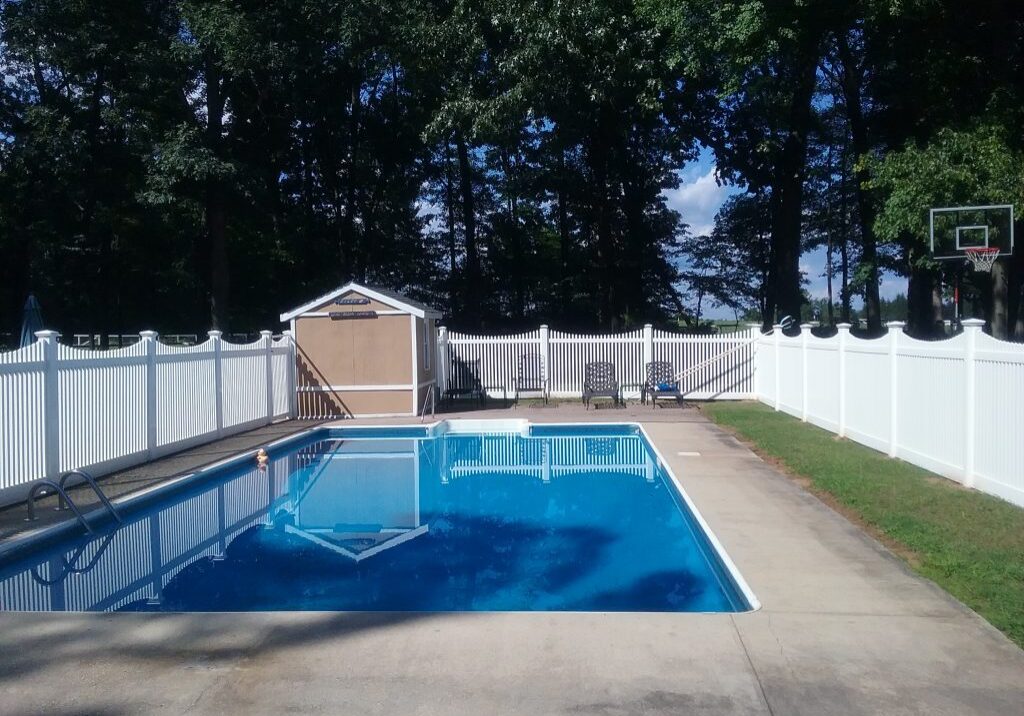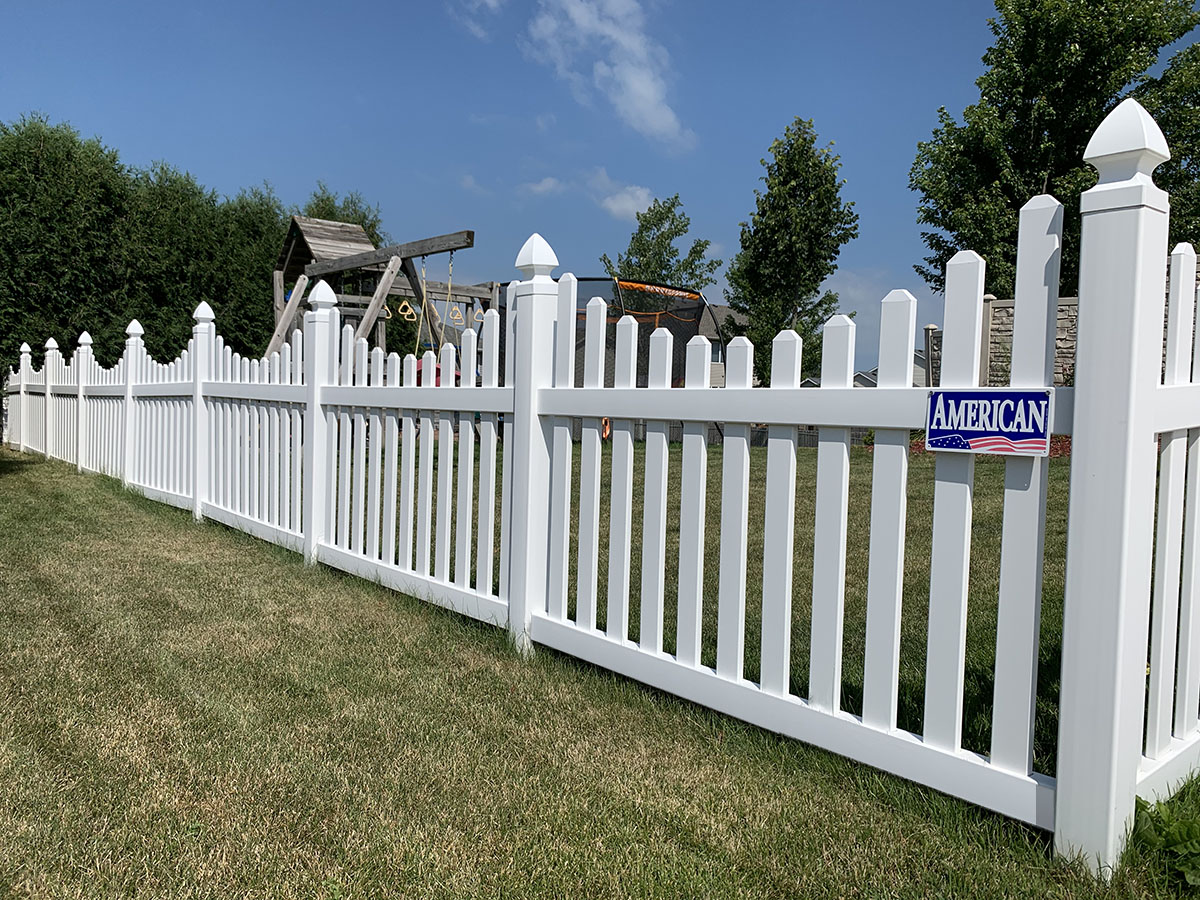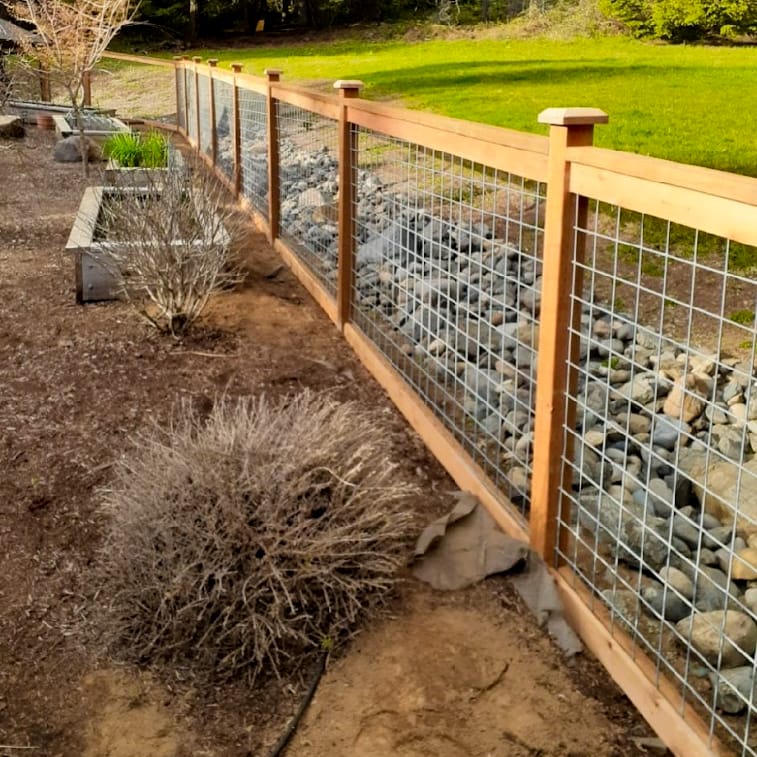All Categories
Featured
What Kinds Of Secure Fencing Materials Are Available for Residential and Commercial Projects?
Fencing is a flexible and useful addition to any property, offering security, privacy, and aesthetic appeal. Choosing the best material relies on the specific demands of your property or business job. Let's discover one of the most popular secure fencing materials and what makes each appropriate for various applications.- Wood Fencing. A perennial preferred, wood secure fencing provides a classic and all-natural appearance that matches numerous home types.
Benefits:
Convenience: Offered in layouts like picket, personal privacy, and split-rail fences. Customizable: Can be tarnished or repainted to match your style. Inexpensive: An affordable selection for several homeowners. Limitations: Routine upkeep is needed to secure versus rot, warping, and parasites.
- Vinyl Fence. Plastic has actually become a go-to option for those that desire low-maintenance, sturdy fencing.
Advantages:

Weather Resistant: Manages extreme temperature levels and dampness without degrading. Reduced Maintenance: No requirement for painting or staining; periodic cleansing is enough. Variety: Is available in numerous colors and appearances, including wood-like finishes. Disadvantages: The in advance expense is greater, however long-lasting cost savings on upkeep can offset this.
- Chain-Link Fencing. Practical and economical, chain-link fencing is perfect for protecting huge areas like industrial sites or playgrounds.
Benefits:
Affordability: Among the least pricey secure fencing options. Longevity: Immune to weather and physical damages. Adjustable: Can consist of personal privacy slats or coverings for a sleek look. Considerations: Offers limited privacy unless supplemented with added functions.
- Light weight aluminum Secure fencing. Understood for its modern and smooth appearance, light weight aluminum is a preferred option for household and industrial homes.
Secret Features:
Rust-Free: A perfect remedy for moist environments. Lightweight: Easier to set up contrasted to steel or iron. Ornamental: Commonly used to replicate the look of functioned iron. Limitations: Not as solid as steel, making it much less appropriate for high-security demands.
- Wrought Iron Fencing. Wrought iron integrates style with toughness, making it a costs option for upscale properties.

Advantages:
Personalized Styles: Includes an advanced, unique touch to any residential property. Exceptional Sturdiness: Stands the examination of time with appropriate maintenance. Safety: Difficult to damage or breach. Challenges: High cost and the demand for normal upkeep to avoid rust.
- Compound Fence. Compound fence, made from a mix of timber fibers and plastic, is a green choice with the look of all-natural timber.
Advantages:
Eco-Friendly: Often made from recycled products. Sturdiness: Resistant to weather, rot, and insect damages. Low Maintenance: Requires little maintenance compared to traditional timber. Drawbacks: Higher preliminary costs contrasted to typical wood fence.
- Steel Fence. Steel fencing is a robust option for buildings needing maximum security.
Features:

Long lasting: Withstands significant physical and ecological stress. Personalized Coatings: Powder finishing improves its resistance to corrosion. Security-Focused: Perfect for risky or commercial areas. Considerations: Much heavier and a lot more pricey than aluminum.
- Bamboo Fencing. For eco-conscious jobs, bamboo supplies a sustainable yet elegant alternative.
Advantages:
Eco Pleasant: Bamboo restores rapidly, making it renewable. One-of-a-kind Visual: Includes an all-natural, unique touch to your building. Cost-efficient: Commonly more economical than hardwood alternatives. Obstacles: Less durable in wet environments and might need therapies for longevity.
- Masonry and Rock Fence. For an absolutely long-term remedy, stone or brick secure fencing provides unrivaled resilience and visual appeal.
Trick Includes:
Toughness: Lasts for years with very little upkeep. Noise Reduction: Suitable for residential or commercial properties near busy roads. Stylish Appearance: Creates a elegant and magnificent appearance. Downsides: High setup prices and restricted versatility for changes.
Choosing the Right Fence Material. When choosing fence for your home, think about the following variables:
Function: Determine whether you prioritize privacy, safety, or aesthetic appeals. Budget: Some materials, like wood and chain-link, are extra budget-friendly, while others, like rock or wrought iron, call for a bigger financial investment. Upkeep Demands: Products like plastic and light weight aluminum are low-maintenance, while timber and iron need even more treatment. Local Climate: Select a material that withstands your area's weather. Final thought. From the rustic appeal of timber to the modern-day refinement of aluminum, there's a secure fencing product for every property or commercial task. Each option offers distinctive advantages, so comprehending your property's certain needs will certainly aid guide your choice. Seek advice from an expert secure fencing contractor to discover styles, materials, and setup alternatives to bring your vision to life.
Latest Posts
Explore Limited-Time Auto Repair Offers in Chicago at Montclare Auto Repair
Published May 27, 25
1 min read
Explore Auto Services & More: Complete Auto Care Solutions from Montclare Auto Repair
Published May 27, 25
1 min read
Specialist Residential Roof Solutions You Can Count On
Published May 25, 25
1 min read
More
Latest Posts
Explore Limited-Time Auto Repair Offers in Chicago at Montclare Auto Repair
Published May 27, 25
1 min read
Explore Auto Services & More: Complete Auto Care Solutions from Montclare Auto Repair
Published May 27, 25
1 min read
Specialist Residential Roof Solutions You Can Count On
Published May 25, 25
1 min read